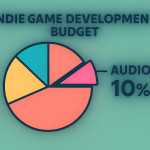Session contracts decoded: protect rights when hired as a backing player
A solid session contract is the only thing standing between you and unpaid overtime, missing credits or unexpected re-use of your performance. This guide decodes every clause, shows usual pay scales and gives you negotiation scripts so you leave the studio with your rights, your fee and your reputation intact.
Why a session contract is non-negotiable
A session contract turns a handshake into a legally binding agreement. For backing players, a clear document:
- Locks in payment terms—no more chasing invoices.
- Defines usage rights so your bass line does not end up in a film trailer without extra pay.
- Protects credit attribution, crucial when producers search build a winning showreel.
- References union or industry scales to back your rate request.
Risks of performing without a written session contract
Playing on spec may feel flexible, yet it exposes you to late payments, copyright disputes and loss of future income. A quick phone photo of a signed session contract saves months of emails and legal fees.
Key clauses every session contract must include
| Clause | Studio Recording | Live Broadcast | Remote Session |
|---|---|---|---|
| Fee & Overtime | Per three-hour block + 50% per extra hour | Day rate + 20% after 10 p.m. | Per track + revision cap |
| Usage Scope | Album only | Single broadcast + 30-day catch-up | Stems for one project only |
| Re-use/Buy-out | Re-use triggers 100% new fee | Royalty share on rebroadcasts | No library resale without consent |
| Credit | Booklet & DSP metadata | On-screen lower third | Project website |
| Cancellation | 50% fee inside 48 h | Travel reimbursed | Full fee inside 24 h |
Negotiating fair pay under a session contract
The best clause is useless if your rate is off. Start with union guidance, then layer on project specifics.
- Union scales. UK Musicians' Union: £196 per three-hour studio call. US AFM: $319. Germany Ver.di: €250. Canada CFM: C$421. Australia MEAA: A$350.
- Budget tier. Independent EP? Accept lower per-track fee but keep re-use royalties intact.
- Deliverables. Charging per instrument layer, per stem or per revision anchors the conversation in tangible work.
Need deeper benchmarks? Consult the 2025 musician day-rates guide before your next email.
Five negotiation scripts that work
- “I follow MU scale of £196 per block; overtime is prorated at 50 %. Does that fit the budget?”
- “Happy to grant sync rights for trailers at 200 % of the original session fee.”
- “If you need isolated stems, I can add them for €40 each, capped at three revisions.”
- “For buy-out offers, my minimum is AFM scale plus 20 % to cover lost royalties.”
- “Cancellation inside 48 h carries a 50 % fee so I can hold the date.”
Intellectual property: who owns what?
Unless your session contract says otherwise, you own the performance copyright. The producer gets a licence matching the agreed usage. Never assume a blanket buy-out—write it.
Check that the contract:
- Names the rights holder (you) and the licensee (client).
- Lists each medium (album, ad, game).
- Specifies territory and duration.
- Defines royalty splits for future exploitations.
Workflow safeguards that support the contract
Paperwork is powerful, but your daily workflow must align:
- Time-stamped file delivery. Use cloud folders that log uploads.
- Version control. Label stems v1, v2 to avoid credit confusion.
- Session logs. Note takes, microphones and personnel—vital if disputes reach court.
- Networking follow-up. After each gig, send a polite check-in using producer-meetup networking tactics.
Expand your gig pipeline

Session contracts are only useful if you keep playing. Browse collaborative musician listings to spot briefs that value clear paperwork. Large-scale remote projects often rely on crowdsourced orchestra workflows—another place where airtight session contracts win you repeat calls.
Practical checklist before you sign
- Confirm who signs: producer or label? No signature, no play.
- Scan and save a PDF copy to cloud plus phone.
- Invoice reference number matches the contract number.
- Double-check NDA clauses do not forbid promotion of your credit.
- Align fee currency with your tax residency.
Quick quiz: are you contract-ready?
FAQ
- Do I still need a session contract if the gig is “for exposure”?
- Yes. Even unpaid showcases benefit from written terms for credit, usage limits and cancellation protection.
- Can a producer refuse to credit me after I sign?
- Only if the session contract allows it. Insert a mandatory attribution clause to prevent silent releases.
- What happens if the track charts internationally?
- Royalties flow according to the usage clause. If you negotiated points or neighbouring rights, income scales with success.
- How do I enforce payment when the client delays?
- Cite the session contract, add late-fee interest stated inside, then escalate to small-claims court or your union.
Next step: lock in your rights
Download a free session contract template, personalise the clauses above and walk into your next booking with confidence. Your bass riffs deserve airtight protection.
Ready to put these tips into action? Start pitching today and attach your customised session contract to every enquiry.











